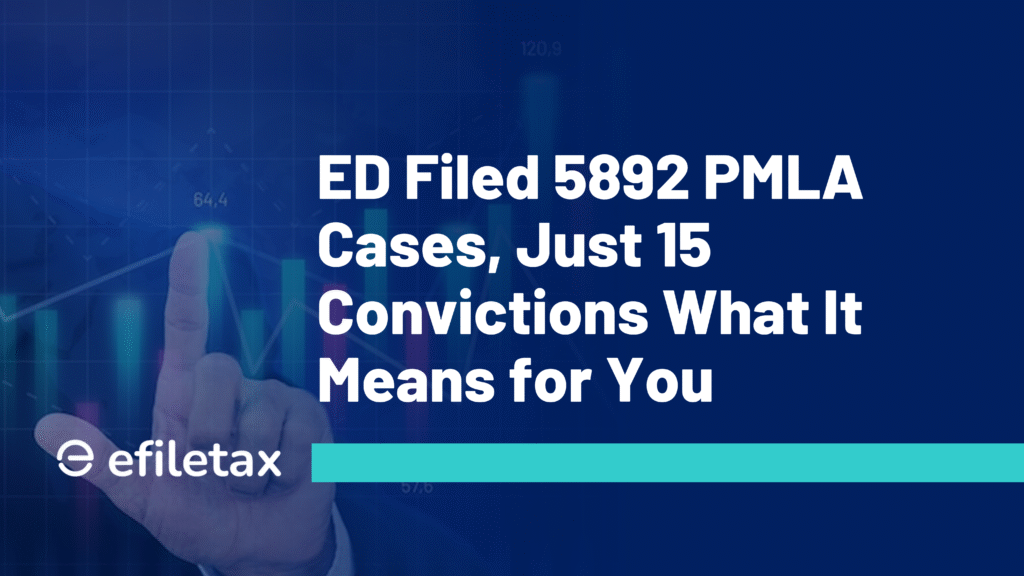
ED PMLA Conviction Rate: Just 15 Convictions in 10 Years
The Enforcement Directorate (ED) has filed 5892 cases under the Prevention of Money Laundering Act (PMLA) since 2015. But as per the Finance Ministry’s reply in the Rajya Sabha, only 15 cases have led to conviction in the last 10 years. This raises sharp questions about investigation quality, misuse of power, and legal accountability.
What is the PMLA?
The Prevention of Money Laundering Act, 2002 (PMLA) was enacted to curb money laundering and attach proceeds of crime. ED is the primary agency to enforce this law. It can:
- Attach and seize property suspected to be proceeds of crime
- Arrest and prosecute individuals
- Seek custodial interrogation under stringent bail conditions
The law was amended multiple times, including a major overhaul in 2019, making it more powerful—but also more controversial.
What the Data Shows
As per the government’s written reply:
| Particulars | Since 01.04.2015 |
|---|---|
| PMLA cases filed | 5,892 |
| Convictions | 15 |
| Conviction rate | ~0.25% |
By contrast, as per NCRB data, the average conviction rate under the Indian Penal Code hovers around 45%–50%.
Focus Keyphrase in Spotlight: ED PMLA Conviction Rate
The ED PMLA conviction rate reveals the imbalance between the number of cases filed and actual outcomes. Legal experts argue this reflects:
- Overuse or misuse of arrest and attachment powers
- Lack of prosecutable evidence
- Prolonged trial timelines
A 2022 Supreme Court judgment in Vijay Madanlal Choudhary v. Union of India upheld many ED powers under PMLA. But critics pointed to the risk of low accountability.
Legal Angle: Parliamentary Oversight & Judicial Review
The Finance Ministry’s reply dated 30 July 2025 in the Rajya Sabha, responding to a question by MP Elamaram Kareem, clearly stated the numbers.
“The total number of PMLA cases where prosecution complaints were filed is 1,087. Final disposal has happened in only 42, and convictions in 15.”
The ED’s powers have been repeatedly challenged in court. Yet, with such a low conviction rate, parliamentary oversight may become stricter in future.
Expert View: Is ED Becoming a Tool or a Toothless Tiger?
Many legal scholars and retired enforcement officials suggest a course correction:
- Strengthen evidence-based investigation
- Avoid political misuse
- Train officers on case building and trial strategy
- Ensure time-bound disposal through special courts
“Convictions are the true test of justice. If 5880 people walk free, it either means they were wrongly targeted—or prosecution failed to prove its case.” – Senior Advocate, Delhi HC
FAQs
Q1. Is PMLA a criminal law?
Yes. PMLA is a penal statute and cases under it are tried in Special Courts. Conviction can lead to imprisonment of 3–7 years (or more if linked to NDPS offences).
Q2. Does a low conviction rate mean ED is misusing power?
Not directly, but it raises questions about overreach, selective targeting, or weak evidence.
Q3. Can the accused claim compensation if acquitted under PMLA?
Currently, there’s no statutory compensation, but civil remedies or writ petitions may be filed.
Summary
The ED filed 5,892 PMLA cases since 2015 but secured only 15 convictions in 10 years, the Finance Ministry told the Rajya Sabha. This puts the ED PMLA conviction rate at just 0.25%, triggering questions about efficiency, misuse, and the need for stricter judicial and parliamentary scrutiny.
Want simplified updates on tax and finance laws?
Stay informed with expert-written insights. Explore more blogs on Efiletax.in and ensure you’re always a step ahead in compliance.